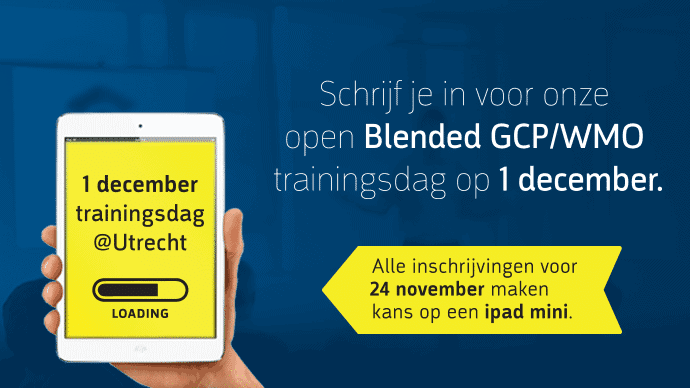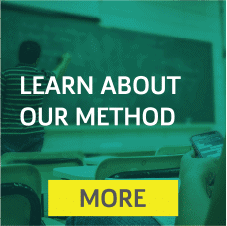For the content of our GCP training we work together with doctors, researchers, medical directors, CRAs, auditors, research nurses and many others. Their experience, knowledge and daily dilemmas during clinical research, provide input to our cases and ensure that the GCP guidelines come to life. So in the past three months, a total of fifteen experts sat down with us at the table. We asked them: what is needed? What does GCP mean in your daily practice? How do you learn GCP best?
A framework of learning objectives
With the conversations we wanted to find out in the first place what students should be able to and know according to GCP and which roles (monitor, researcher and sponsor) play a role. We have placed this in a taxonomy: the framework in which all learning objectives are stated that indicate what all those involved in the clinical research must know and can do so that they comply with the GCP guidelines and the applicable European and national legislation (WMO). In the taxonomy we have included all kinds of dilemmas that play a role in practice.
Dilemmas?
An example of such a dilemma is: A child with an enzyme disease is flown in from abroad with a plane to a hospital to take part in a clinical drug research. This brings with it some practical dilemmas, because when does the study start and have you taken informed consent? If you enter the plane or if you arrive at the new hospital? Who will you take the informed consent? And which national law must you meet?
How knowledge exchange leads to more knowledge
Because such practical dilemmas emerged, the participants already learned from each other. There were lively discussions about responsibilities and tasks, but also about the practical implementation of the frameworks and lawsMarco from Brussels (researcher at UMC Utrecht):‘By talking in these meetings with the other experts alone, I got new insights into GCP. It is very instructive to hear different practical examples from other hospitals, but also to learn how a chairman of an ethics committee views matters “.
IlseFijn (educational scientist at GCP Central): ‘The conversations were very successful. The experts were able to explain to us in detail how the different rules from GCP were put together. With this knowledge and experience we can make the GCP training really relevant to the participants. What is important when you are a researcher or monitor? And how do you then apply the rules? ‘
Learn more about how we organise our courses? View our training page or take contact with us. Would you like to provide input and thoughts? That is also possible. Talkcontact with Marieke to discuss the possibilities.


